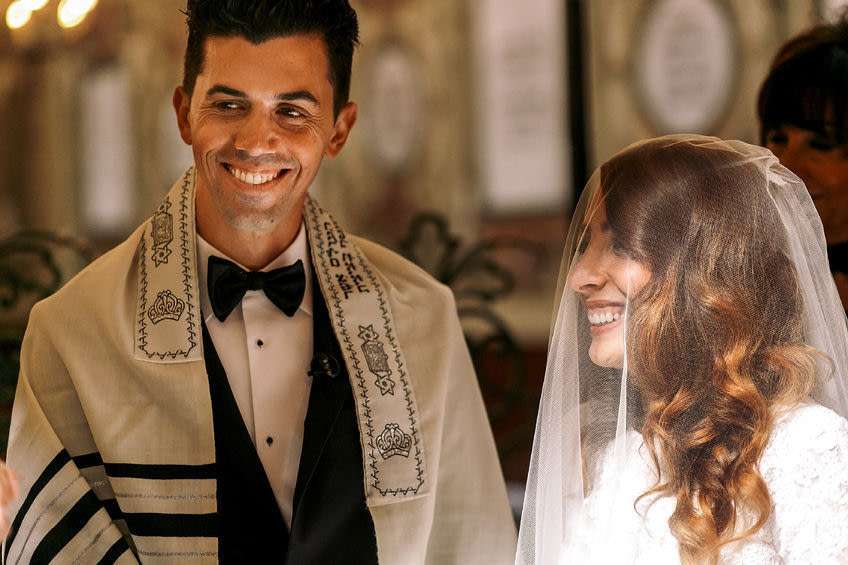If faith has been a foremost part of your life, you will require clear communication and effort to make your interfaith relationship work.
Interfaith relationships are more complicated than ones with similar backgrounds.
The primary qualities that once attracted you to them eventually become the main reason for the difficulties. While interfaith relationships can be tricky for some couples, it can be tough to accept the fact your partner does not follow the same religious values as you.
Many relationships with different religions work because one of the partners is not religious or does not care about it. Katya Ramdya, a London-based Hindu writer, articulates their secular nature as the foundation of their successful marriage with a Muslim husband.
Successful interfaith marriages require considerable communication with your spouse concerning the religious effects on the relationship. You need to work together to tackle the challenges of an interfaith relationship.
The Challenges of An Interfaith Relationship

The increasing number of relationships with different religions confirms that interreligious relationships can be successful. With proper guidance and professional support, interfaith couples can enjoy healthy relationships. However, the absence of proper counseling and support can be challenging for the couple.
Some of the most common challenges faced by interfaith couples are:
Feeling Guilt and Separation
According to Judith Wallerstein, the emotional separation of a young couple from their family serves as the foundation of a successful interfaith marriage.
However, the lack of support from both families will fill up the relationship with conflict, misunderstanding, constant friction, and negative consequences. This hostility can trigger feelings of guilt for the young couple, along with an even more difficult emotional separation.
Building Intimacy
Achieving profound intimacy serves as the fundamental aspect of a marriage. It is the foremost commitment among happy marital partners.
However, achieving this intimacy in an interfaith relationship can be extremely challenging and daunting. When couples from different religious beliefs come together, there are fewer common grounds and a higher possibility of insensitive, confused, and misapprehended feelings.
Compromised Identity
Most interfaith couples go through the challenging phase when they feel as if they have compromised their true religious identity. They do not fit in anymore. This could result in never-ending differences among couples of different faiths.
Mistakes In Your Interfaith Marriage
When we talk about interfaith marriage, it comes with challenging circumstances. We should be aware of the common mistakes and avoid them at an early stage in interreligious marriages.
- Never ignore your religious differences. Ignoring your beliefs is not going to do any good in the relationship. Rather find a way to understand the common grounds.
- Considering that, the religious association is not important in the long term.
- Believing a good sense of humor can solve all the religious differences in relationships.
- Having the mindset of “love conquers all” and thinking all your problems will go away by ignoring them.
- Cutting ties with parental families is not going to help in a successful interfaith marriage.
- Converting religion will not solve all the problems of interfaith marriage.
- Believing your marriage is never going to face any problem.
- Ignoring family concerns about choosing interfaith marriage.
Ways To Make Your Interfaith Relationship Work
Remember, simply avoiding the issue is not going to solve the conflict.
Share Your History
It’s always wonderful to discuss religious background with your partner. Having a common decision for a wedding offers the opportunity to develop a better understanding of successful interfaith marriage.
Face The Issues
Most interfaith couples ignore the fact of coming from different backgrounds. The need is to open up and embrace the underlying difference in the relationship.
It’s not about picking one between love and religion; however, selecting a common ground because these differences are going to stay, even in the future. Couples often make wrong assumptions about the religious beliefs and preferences of their partner. It is always best to embrace the issue, come forward and speak about it.
Find Balance In The Relationship
While it could be challenging to manage different beliefs at the same time, understanding healthy boundaries can help in working things out. Couples with different religious beliefs discover some common grounds to balance their relationship. It offers incredible respect and admiration for your partner.
Stop Trying To Convert Your Partner
You need to stop thinking about converting your partner’s religion. Respect your love and religion. You should be appreciative of their background and personality. Don’t criticize your partner’s faith and religious practices.
Remember, their beliefs are an important part of their life, and you shouldn’t be the one deciding for their life. Giving them space and freedom will make your interreligious relationship stronger.
Accept them for who they are without keeping higher hope to convert them.
Listen To Each Other
Religious differences in interreligious relationships can be damaging sometimes. They prevent people from enjoying the true essence of love in the relationship. Pay attention to your partner and take time to appreciate their presence in your life.
Remove all distractions and spend quality time with them. Love without worrying about their background.
Educate Yourself
Establishing a religious relationship by learning the beliefs of your partner shows your dedication and respect for them. You can ask them questions to enhance your understanding of their faith.
Moreover, you can read books and consult other educational resources to develop a profound understanding of their religious background. Besides, you can always ask for their recommendations to grow better comprehension of their religious beliefs.
Discuss Your Future Together
Speak about your expectations from this interreligious relationship.
It is always wonderful to communicate questions like, “What does our future look like?” “What is your strategy to make your interfaith marriage work?” “How are we going to celebrate different religious festivals?”
Try To Stay Flexible
One of the most important interfaith relationship advice is to be flexible with your partner. While prioritizing your marriage, you both should be ready for mutual compromise in the relationship.
Participate in the religious activities of your partner. Help them know you care about everything related to their happiness. You can cheerfully celebrate religious holidays together at home.
Decide Religious Traditions For Your Children
Speaking and coming up with religious traditions for your future children are the trickiest questions. It can quickly turn from a “happy relationship” to a “relationship and religion.” Interreligious marriages become highly complicated after figuring out this sensitive issue.
It should be a mutually respectful and kind conversation. It’s better to speak sooner and have a common perspective than to discuss it later in life.
While some pick one tradition for their children, other interfaith couples decide to follow traditions from both of their religions. Whatever you decide in the relationship, don’t forget to be kind to each other.
Think About Couples Counseling
For interfaith couples, participating in couples counseling is the perfect way of developing communication and learning various strategies to deal with the conflicted situation.
Remember, couples counseling is not just for couples dealing with problems. It can play a significant part in the development of relationships with different religions while avoiding potential future issues. Counseling can help couples in interreligious relationships to enjoy a durable, healthy, and respectful relationship.
Ask what are your religious beliefs and how do you want to practice them?
Speak about your beliefs and ideas about traveling or building a family together.
Conclusion
Couples with different religious backgrounds can follow the above-mentioned guidelines and successfully bridge the gap in an interfaith marriage by constructing a strong base on understanding and mutual respect.









